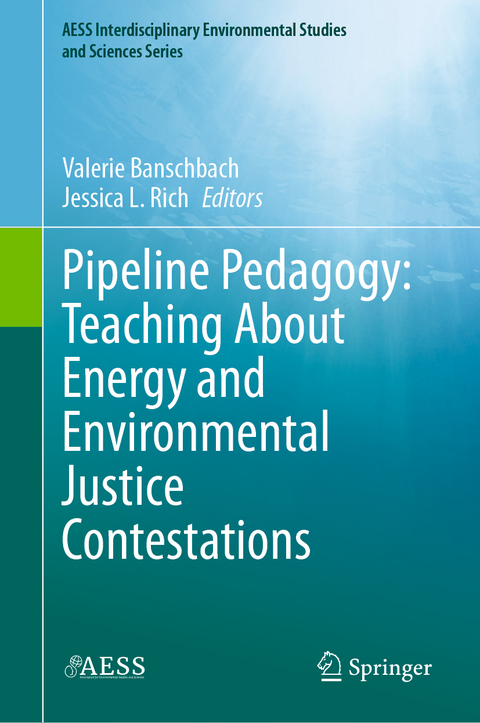
Pipeline Pedagogy: Teaching About Energy and Environmental Justice Contestations
Springer International Publishing (Verlag)
978-3-030-65978-3 (ISBN)
Valerie S. Banschbach, Ph. D., is an Associate Provost and the Dean of Sciences and Education, at Gustavus Adolphus College, in St. Peter, Minnesota. She has conducted research focused on social insect behavior and conservation ecology, as well as developed innovative pedagogy and curriculum in Environmental Studies. She has taught and conducted fieldwork with students in Costa Rica, India, Kenya, Mexico, Panama, and Uganda, as well as Vermont and Virginia, in the U.S. She co-edited the volume Animals in Environmental Education: Interdisciplinary Approaches to Curriculum and Pedagogy (in 2019, Palgrave MacMillan) and has published numerous scientific journal articles. She is the President of the Association for Environmental Studies and Sciences. Valerie earned an Outstanding Faculty Award for the State of Virginia from the State Council for Higher Education, while she was a Professor and Chair of the Environmental Studies Program at Roanoke College is Salem, VA. She was awarded a Fulbright-Nehru Senior Scholar grant for teaching and research in Uttarakhand India. Jessica Rich (Ph.D., University of North Carolina at Chapel Hill) is an organizational and environmental communication scholar and practitioner researching labor, identity, and nature-society interactions in the context of energy and natural resource development. Her publications can be found in the journals, Environmental Communication, Ephemera, and Sustainability. She has served as joint faculty in Communication and Environmental Studies at Merrimack College, developing and teaching courses such as environmental communication, environmental justice, conflict management, and non-profit communication and held the position of postdoctoral research associate with the Cooperative Institute for Environmental Science and the Center for Science and Technology Policy Research at the University of Colorado, Boulder.
Cross-disciplinary Learning and Pedagogical Lessons from the Mountain Valley Pipeline.- Learning to Undermine a Pipeline: A Multi-Logue on Encounters with Vermont's Addison Natural Gas Project.- We are Teachers and Learners Together: Cross-Disciplinary Lessons from the Pilgrim Pipelines Dispute.- Teaching Environmental Justice Through Toolkits: Indigenous Projects to Challenge Colonialism.- The Stop PennEast Pipeline Fieldwork Project: Teaching Students to Apply Fieldwork Methods to Studying a Natural Gas Pipeline Opposition Movement.- Extractive Messaging: Communicating Pedagogy, Pipelines, and Power.- Mountain Valley Pipeline: A Case Study in Local Resistance and Mobilization.- The Dakota Access Pipeline and the Politics of Sustainability Education at Central College.- Climate Justice: Linking Sovereignty, Local Environments, and Climate Through Pipeline Pedagogy.
| Erscheinungsdatum | 08.04.2021 |
|---|---|
| Reihe/Serie | AESS Interdisciplinary Environmental Studies and Sciences Series |
| Zusatzinfo | XIV, 160 p. 9 illus., 6 illus. in color. |
| Verlagsort | Cham |
| Sprache | englisch |
| Maße | 155 x 235 mm |
| Gewicht | 438 g |
| Themenwelt | Naturwissenschaften ► Biologie ► Ökologie / Naturschutz |
| Recht / Steuern ► Allgemeines / Lexika | |
| Recht / Steuern ► EU / Internationales Recht | |
| Technik ► Elektrotechnik / Energietechnik | |
| Schlagworte | Energy Issues • Environmental Contestations • environmental justice • Fossil Fuel Pipeline • Pedagogy |
| ISBN-10 | 3-030-65978-X / 303065978X |
| ISBN-13 | 978-3-030-65978-3 / 9783030659783 |
| Zustand | Neuware |
| Haben Sie eine Frage zum Produkt? |
aus dem Bereich


